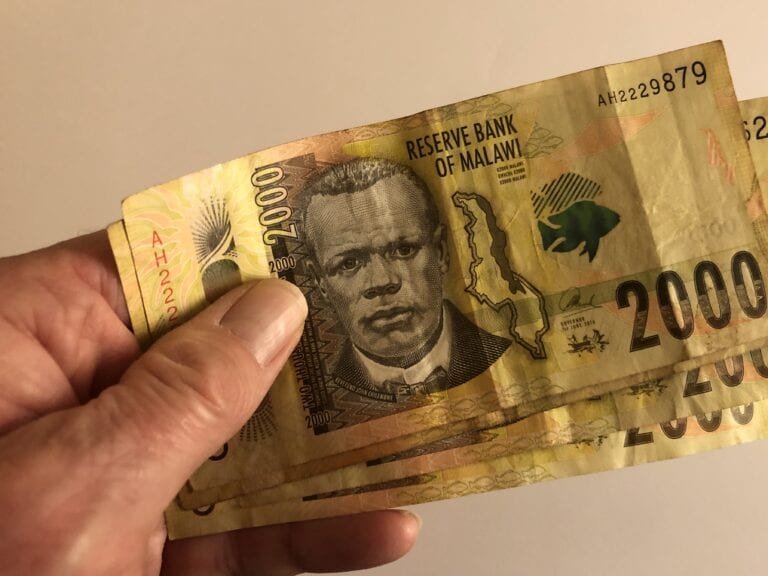On 9 November 2023, the Malawi Government devalued the national currency, the kwacha, by 44% against the dollar (see this BBC News item). The purpose was to increase the purchasing power of Malawi’s foreign exchange, which is held in dollars. Devaluation makes Malawi’s exports more valuable. Whereas a dollar was worth K1,180 on 8 November it became worth K1,700 the following day.
This devaluation came only eighteen months after a previous devaluation, in May 2022, when the kwacha was devalued by 25% against the dollar.
The flip side of devaluation is that it makes imports more expensive. As Malawi imports a large range of foodstuffs and commodities, devaluation is leading to massive price increases.
In a peculiar way, the very poorest – the hundred of families in places like Malenga Mzoma who don’t have any disposable income – will feel the immediate impact least; they couldn’t afford basics before devaluation, let alone after. Hope has just become more distant. For this group, our Farming Improvement Programme is the lifeline because it offers people a pathway to a basic income.
Those who will feel the devaluation more directly are those struggling to grow their small businesses, especially if devaluation curtails their customers’ ability to buy. We will have to review the damage price rises do to our microloans programme: the terms for some will definitely need to be revised.
Devaluation has consequently hit our shop, Chanju. Sales are only half this November compared to the same month last year, which in turn means the shop can provide less financial support to the Foundation.
This makes our need to raise funds even more acute. If you can help, please visit our donate page.

